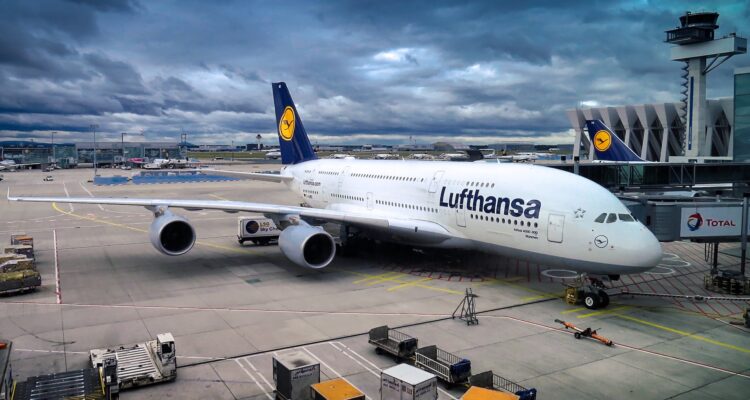Multitasking can certainly help you prepare for a move overseas.
International relocations can be one of the most challenging endeavours an individual can experience in a lifetime. It entails juggling multiple tasks and concerns, from packing and moving, to looking for the right place to move to, to managing potential language and cultural differences, to preparing the family for a huge leap.
However, multitasking during the preparation stage can cause you to make mistakes that will affect your plans. Moreover, these oversights can give you plenty of headaches once you arrive in your new home.
If you want to experience a stress-free relocation, note the top five planning mistakes you might make during the hustle and bustle of a move, as shared by representatives from the best international removal companies, and tips on how to avoid them:
1. Failing to conduct sufficient research


Arming yourself with adequate knowledge can help you prepare well for an international move. However, with numerous things to do, reading about your destination and other information relevant to your relocation might be your lowest priority.
Although this mistake may seem trivial, it can affect various parts of your moving plans. If you don’t know anything about the language, laws, customs, cost and standard of living in your country of destination, you and your family will take longer to adjust to your new home and deal with a bigger culture shock.
Also, if you don’t take the time to read about the items you can and cannot bring during your international move, you may experience delays, face fines, or have your entire shipment seized by foreign customs authorities when you ship something that turns out to be prohibited.
To avoid all these issues, take the time to read important information about your destination. Conducting research is easy since you can get plenty of relevant details online.
Also, get some information from people already living in your country of destination. Speak with friends or relatives already residing there. Additionally, join forums and talk with expats to obtain first-hand details.
Lastly, you will find a list of items you can’t bring into your country of destination online. Save or print out a copy to be sure you won’t pack anything prohibited.
2. Hiring the wrong international relocation company.


Lost, delayed, mishandled, and broken items are some common problems you may encounter when you hire incompetent movers. If you don’t want to experience these issues, you will do well to hire the right removals company.
Looking for and short-listing the most reputable international movers in your area or country can help you choose the best one. You can start the process by searching for moving companies and reading reviews about them online.
Next, compare your shortlisted moving companies in terms of services and rates.
Once you have narrowed down your list further, schedule an interview with a representative from each mover. Doing so allows you to know more about them and their services and rates. You will also get an idea of the quality of service the removalist provides and find out if you are comfortable hiring them.
Keep in mind that if you hire the right removals company, you can get help with the various stages of international relocation, even with choosing and packing the items you should bring during your move.
You can also get assistance with finding a home and learning more about your destination country if they provide a cultural orientation programme.
3. Failing to plan your move sufficiently.


Interstate moves require plenty of planning and preparation. International relocations demand even more. You will likely have more items to pack, especially if your family is going with you.
Moreover, you will have to put more effort into packing many of your fragile items carefully.
You can avoid various issues that come with packing items haphazardly by putting enough time into planning your move.
Ideally, you should start planning your move once you are sure you are relocating because of a new job, business opportunity, or taking up residency overseas.
A good moving plan entails creating a timetable for everything you have to do before your flight. This means setting a deadline for all tasks you have to complete.
Start by making a packing schedule. Do this by room per week. Include purging your belongings in your plan so that you don’t end up bringing everything to your new home.
If you need to renew important documents, undergo medical check-ups, and get vaccinated, do all of them a month or two before your flight.
Don’t forget to hire your movers and finalise your moving date with them three to four months before your flight.
Keep in mind that the earlier you make your packing and moving plans, the more you will be prepared for your international relocation. You will also commit fewer mistakes.
4. Not packing your items properly.


Undoubtedly, you and your family take extra care when packing your clothes and other belongings when going on a holiday. Be doubly meticulous in doing the same when moving abroad.
If you and your family pack everything haphazardly, you will end up opening boxes full of damaged items.
To protect your valuable possessions during an international move, follow these packing tips:
- Use good-quality boxes and packing materials to prevent items from breaking during transport and storage.
- Wrap fragile items with bubble wrap, packing paper and foam, or moving blankets before putting them inside the boxes.
- Place large, heavier items into the boxes first, then the smaller, lighter ones on top to maximise the space.
- Fill empty spaces inside the boxes with bubble wrap, packing peanuts, or crumpled paper to prevent items from moving and provide additional cushion.
- Avoid over-packing boxes.
Again, make sure you double-check the list of items you can’t bring to your country of destination to avoid getting into any problems.
5. Not being financially prepared for the move.


Whether you already have a job offer and concrete business plan or have yet to find your footing in your destination country, underestimating your financial needs in your new home is a huge mistake you have to avoid.
Remember that when you move abroad, you won’t start earning immediately. As such, you need to have money to sustain your essentials for at least your first month of stay in your new home.
Your budget should cover the initial costs of renting or buying a home, purchasing furniture, kitchen equipment, food, and other essentials.
Also, include in your budget all the expenses that come with moving. These include your packing materials, payment for the movers, insurance, termination fees for utilities, and health check-ups and vaccinations.
When you are financially prepared for your move, you will have fewer things to worry about and have an easier time acclimating to your new home.
Moving overseas is a huge undertaking. Minimise the stress you experience and additional work you have to put into this endeavour by avoiding these mistakes.




